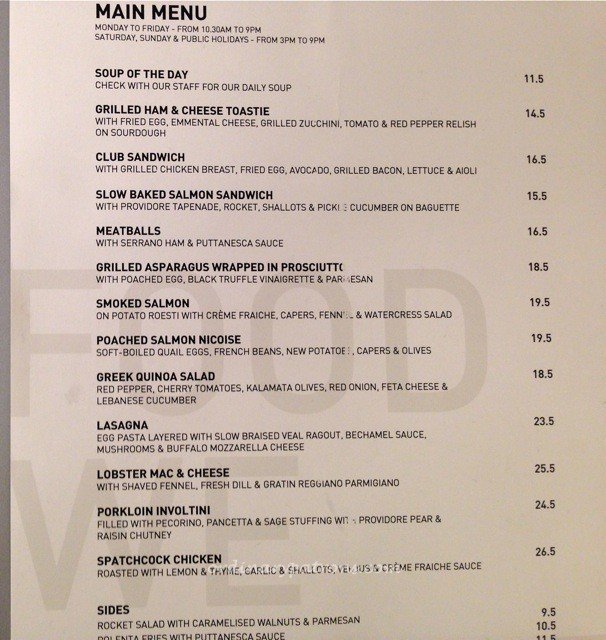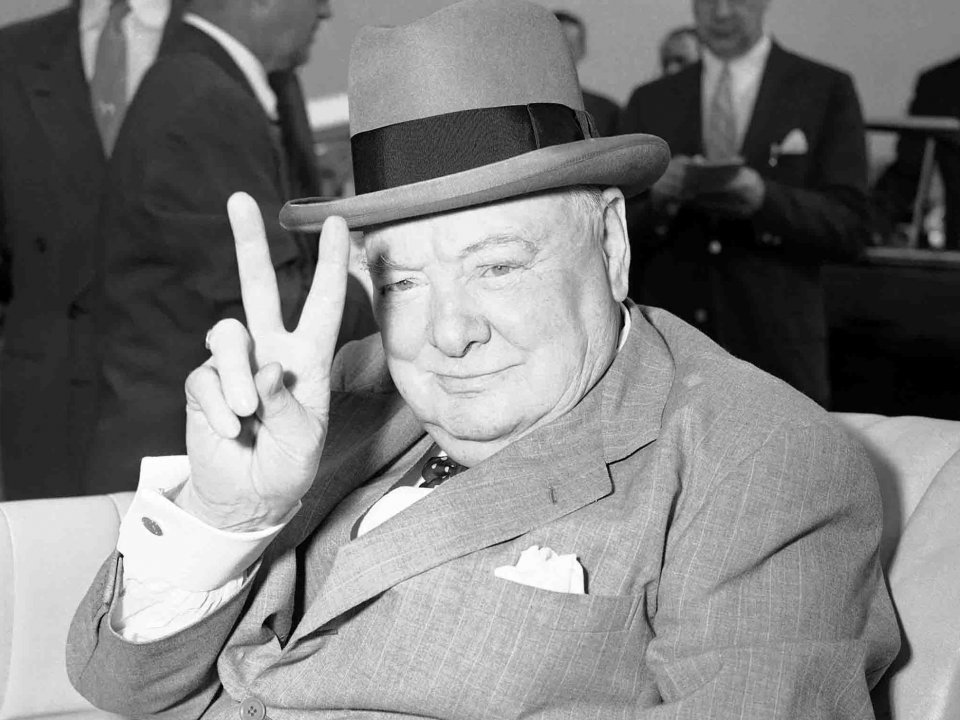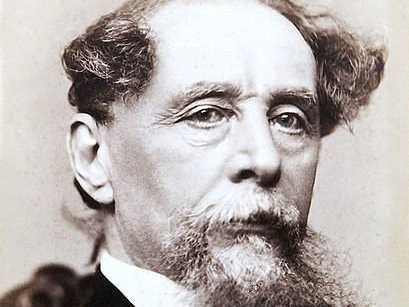Journal of Office Workers
Archive for November 2014
#1 Reason You Hate Job Search (It’s The Same Reason You Hated Zumba)
You hate job search. There isn’t one thing you like about it. But why? Hint: It’s the same reason you hated Zumba at first.
Related: 3 Tips For Landing A ‘Perfect Fit’ Job
Here’s the thing: when you’re learning something new, it can be frustrating because you don’t know everything and probably feel a little foolish. But, if you stick with it, it can be hugely rewarding.
Think about the first time you road a bike. It was scary. You didn’t know how to balance yourself. And you certainly didn’t know how to keep yourself upright for more than three seconds. But you stuck with it, even after struggling, and you eventually built up enough skill to kick off those training wheels and have dad let go of the handle bars. You got it, eventually. You just needed practice.
Now, think about your first time trying Zumba. You were so excited when you first got on the floor. But were you able to keep up with the class? Did you get all the steps the first time? Did it come easy to you?
(If it did, I’m super jealous.)
For many people, it takes at least three sessions to start getting the hang of it. But, you have to endure a few embarrassing moments before you can get to that point. If you give up before you get there, you’ll never learn. And even worse, you’ll never enjoy it.
(In fact, you might even become one of those people who hate Zumba solely because you weren’t amazing at it the first time. What a shame!)
Job search isn’t something most of us are used to doing. It’s not something we do on a weekly basis. We weren’t taught to do it in school. We never got a chance to hone our skills. We just have to go out there and wing it – and sometimes winging it can be frustrating.
That’s why job search can feel impossible sometimes. Because, like learning anything new, it’s hard at first. You don’t know all of the answers. You don’t know how to do everything right the first time. It takes practice.
So, just remember that next time you want to throw your computer out the window. You’re learning. Instead of quitting, find help. Here are three things you can do to improve:
Identify your weak areas. Figure out where you’re struggling and look for resources that will help you strengthen those areas. There are plenty of resources available that help with interviewing, cover letters, resumes, and so on. Here are a few career resources we offer.
Get a career coach. You’ve been coached your entire life – from learning how to ride a bike to learning how to play football to learning how to do math. Your career is a big part of your life (in fact, you spend about a third of your life working), why wouldn’t you get a coach for that? Check out CareerHMO.com for virtual career coaching services.
Practice each day. Don’t avoid your job search responsibilities because you don’t enjoy them. Practice makes perfect. Make yourself a plan and stick with it. Check out this article to help you get started.
I know it’s hard to hear, but if you want to find a great job, there aren’t any shortcuts. Sitting on the computer staring at job postings all day and blindly sending out resumes won’t do you any good. You need to learn how to job search effectively and efficiently.
Now, go out there, learn how to job search, and get the job you want!
Related Posts
4 Ways To Stand Out To Employers
4 Ways To Avoid Looking Like A Job Hopper On Your Resume
5 Skills Employers Want Their Employees To Have
Photo Credit: Shutterstock
The post #1 Reason You Hate Job Search (It’s The Same Reason You Hated Zumba) appeared first on CAREEREALISM.
from CAREEREALISM http://ift.tt/1AYbSXl
via IFTTT for Journal of Office Workers
7 Habits Of Happy Job Seekers
Who said job search had to be a huge downer? Not me!
Related: 3 Tips For Landing A ‘Perfect Fit’ Job
For most of us, job search is a part of life. It’s something we all have to deal with at some point - like jury duty. But that doesn’t mean we can’t allow ourselves to be happy until we find a job. Your job search could take weeks - likely months - and life is just too short be unhappy that whole time!
Yes, it’s possible to be happy AND to be looking for a job. Here are seven habits of happy job seekers:
1. They Make A Strategic Plan Of Attack
It can be difficult to keep focused and stay on track if you don’t have a strategic plan in place for your job search. Think about your goals and what you need to do to accomplish those goals. Get specific. Give yourself deadlines. Make yourself get out of your comfort zone. Having this plan will motivate you to keep moving forward.
If you need help setting goals for yourself, click here to learn how to set S.M.A.R.T Goals.
2. They Eat Healthy
Make sure you’re eating healthy. A bad diet can contribute to depression and fatigue. Make sure you’re getting your vitamins, eating your greens, and getting your protein.
3. They Get Proper Sleep
Make sure you’re getting enough sleep at night. Staying up all night scouring the job boards while you’re tired and unfocused isn’t going to get you any closer than if you waited to do some research in the morning when you’re refreshed.
If you think you’re feeling blue as a result of exhaustion, take a nap. Like my mom always says, “When you’re tired, everything looks black.” Take a quick snooze and recharge your battery.
4. They Hit Up The Gym
Sitting in front of a computer all day isn’t going to give you the energy and endorphins you need to maintain a happy, focused job search. Dedicate a time each day for exercise. If you have a hard time getting away from your job search tasks, make 30 minutes of daily exercise part of your job search plan.
5. They Soak Up That Sun
Try to get outside for at least 30 minutes a day. A few minutes in the sun can do wonders (it’s especially important during the winter to help you fight off seasonal depression). Not only that, but the fresh air will do you good. So, bundle up and get outside!
6. They Send Thanks
You should always send a thank you note after an interview, but it’s also a great idea to send a good ol’ fashion thank you note to someone this holiday season. No one sends thank you notes anymore, but they’re always a nice thing to receive – and you feel great after you’ve written one for someone. If you start feeling down, thank someone for something they did for you. It will remind you of the support system you have and make you feel good.
7. They Spend Time With People
It’s so easy to alienate yourself during a frustrating job search, but it’s important to make time for family and friends. Schedule coffee dates, movie nights at someone’s house, and walks with friends. Make sure you do things that get you out of the house and hanging out with people a few times a week.
8. They Dance It Out
Create a playlist of all of the songs that make you happy, want to dance, or just make you smile. Avoid the negative, sad songs that bring your mood down. My playlist is simply called “Happy,” and I play it whenever I’m feeling down. It definitely brightens my mood and gets me motivated again. (Songs include: “I Love It” by Icona Pop, “You Are What You Love” by Kelleigh Bannen, and “Shake It Off” by Taylor Swift).
Related Posts
4 Ways To Stand Out To Employers
4 Ways To Avoid Looking Like A Job Hopper On Your Resume
5 Skills Employers Want Their Employees To Have
Photo Credit: Shutterstock
The post 7 Habits Of Happy Job Seekers appeared first on CAREEREALISM.
from CAREEREALISM http://ift.tt/11A04eE
via IFTTT for Journal of Office Workers
4 Tips For Becoming The Co-Worker Everyone Loves
Let’s make things clear: It’s impossible for everyone in the workplace to be your close friend. It’s possible, however, to grow positive working relationships with them. So, what do we mean when we say positive relationships?
Related: How To Be More Likeable At Work: 10 Things To Do Today
Every employee dreams of working in an environment where positivity resonates. Where people are supportive of each other. Where you feel motivated to work hard, not to mention score a perfect attendance, because your colleagues are encouraging.
We all aspire to be apart of a team made up of awesome people. How do you ensure now, that you, yourself, are a good colleague to your teammates?
You know you need to attract pleasant treatment before you receive it. With that, here are a few tips for becoming the co-worker everyone loves:
1. Be Pleasant
Remember the golden rule? Don’t do to others what you don’t want others do unto you. This also rings true in the workplace.
If you treat people around you coldly, and refuse to share even a smile, then you could as well expect your colleagues to seem distant.
Although people will have varying attitudes, they can still work together well. It takes open-mindedness to survive and thrive in such environment. So, learn to look past differences. Accept others as they are. Show kindness. It will be returned in situations you need it the most.
2. Be Innovative
It is easy to live on your own while in the workplace - minding your own tasks, limiting talks with your colleagues and going straight to home after work. Your motivation to go to office everyday is the paycheck you receive. You comply to what you’re told to do, but do not really extend efforts going beyond what is expected of you.
If there’s anything you want to explore in addition to the tasks assigned to you, let your boss know. Volunteer to assist your colleagues who might be able to use extra hands.
If the resources given you are not enough, then take the initiative looking for more. Consult your colleagues; ask your boss. Nobody wants someone who depends on spoon feeding.
3. Respect The Bosses
They can sometimes be difficult. They, sometimes, reach out to the team as though they’re on the same rank with them.
Bosses are not created equal. They may be using different approaches to inspire their team. There are times when you would find their rules too stringent, or perhaps lax.
However, they act. Remember, they are your superiors, your leaders. Even if, at times, you might find their behavior uncalled for, never speak negatively about them to your colleagues.
If there is anything you need to say, tell it straight to them. This is not to say that you smarm your boss, however, it would help that they have a positive impression toward you.
4. Sustain Healthy Competition
How do you look at your workplace? Is it something you see as a battlefield, with all your colleagues as your enemies? Is it a place you call your second home with people you deem as your other family? Is it a haunted mansion with everyone around acting like zombies?
It’s okay to be competitive. But to aspire for progress so much that you’re already building barriers from your colleagues can be harmful.
You are a team still, and to get ahead doesn’t mean you’d need to leave people behind or hanging. Do your best while reaching out in any way you can to your colleagues.
This post was originally published at an earlier date.
Related Posts
How To Build Positive Workplace Relationships
Workplace Rehab: How To Get Along With Your Co-Workers
Why You Should Connect With Co-Workers On Social Media
Photo Credit: Shutterstock
The post 4 Tips For Becoming The Co-Worker Everyone Loves appeared first on CAREEREALISM.
from CAREEREALISM http://ift.tt/1qLDAAX
via IFTTT for Journal of Office Workers
Passed Over For A Job? How To Deal
On a coaching call I had awhile back, I heard from a loyal blog reader who was feeling distraught. In a nutshell, her situation was this:
“After interviewing for almost six months, she thought it as a “sure thing” she’d be offered a new position in her department. Then, as if from nowhere, an external candidate was selected for the role. After all the time and energy she had committed to this, she was left feeling frustrated, demotivated and betrayed. This forward-thinking professional was looking for a few creative ways to overcome those negative feelings as she tried to determine what her next career steps should be.”
Tough situation, huh? I felt for this person. It’s never easy to be passed over for a job, but when it’s right there in front of you—at your current place of employment—it can feel like a slap in the face.
Related: How To Turn Job Rejection Into An Advantage
How can you help but think about it every time you see this new person?
How can you help but ask yourself, “What does she have I don’t have?”
For those of you who are in similar situations, here’s what I suggest you:
1. Remove The Emotion
I know it’s easy to get down on yourself, down on your company, and down on this person who snagged the role from beneath you, but don’t get wrapped up in those emotions.Take a little time to vent and wallow in the disappointment, then move on. It’s a new day.
This is business, after all. Things can change in the blink of an eye. The situation might look bleak today, but new opportunities are just around the corner. Don’t beat yourself—or anyone else—up.
2. Get The Scoop
Politely and professionally address the situation with the hiring manager. Ask if he or she can share some of the reasons you weren’t selected. It’s perfectly fine to tell this person that you’re disappointed; you felt your skills and experience were a match for this role.
However, make sure they understand that you respect the final decision and you’re only looking to grow from the experience.
Ask what you can do to be better prepared the next time an opportunity like this comes around. Try to get specifics here: Are you lacking certain skills required for this kind of role? Do you need more education or more hands-on experience? The more you know, the more proactive you can be.
3. Create A Plan
Once you know what you need to be better positioned for future growth, create a plan. Use my Build Your Professional Development Plan workbook to help you outline specific goals and the dates by which you will complete them.
Focusing your attention on this will also help you release any of that negativity that still remains. Nothing feels more satisfying and rewarding than progress.
4. Shift Your Mindset
Have you ever had an experience where something appeared on the surface to be a horrible, negative thing but then, after some time passed, you suddenly realized it was a blessing in disguise? What if that’s what’s happening here? What blessing might be hiding underneath this bad situation?
Look for the opportunity here. Remember, you always find what you’re looking for, so focus on the positive potential.
5. Find An Advocate
Whether we like it or not, the workplace is full of politics. People trade favors and help make things happen for people they like. It’s not always a bad thing… it’s just the way the world works. Why not use that to your advantage? Find someone who really believes in you and supports your efforts to grow. Ask for their help making it happen.
They might not be able to do anything specific now; but perhaps in the future, they’ll have the ear of a decision-maker. Maybe just knowing they’re on your side will help you stay positive.
Having an ally always feels good. Find those people who know your worth and keep them close. Continually reinforce your value and remember to give them support as well. This is a two-way street.
For anyone who’s experienced this kind of thing, I hope my advice here helps.
Keep your chin up and look to the future.
Great things are ahead of you, I promise.
This post was originally published at an earlier date.
Related Posts
How To Deal With Rejection
3 Must-Dos When You Don’t Get The Job
How To Act After Getting A Rejection Letter
Photo Credit: Shutterstock
The post Passed Over For A Job? How To Deal appeared first on CAREEREALISM.
from CAREEREALISM http://ift.tt/1y7kpWK
via IFTTT for Journal of Office Workers
What Not To Do In An Interview
Last week, I had lunch with a colleague who had recently hired someone for a part-time position for her office. My colleague was interested to observe the wide variety of people who applied for a low-paying, part-time position. She was even more intrigued by one candidate’s behavior during the interview.
Related: 4 Things That Destroy Job Interviews
Apparently this candidate had called on her way to the interview to say she was en route. Based on her supposed whereabouts, the candidate should have arrived 10-15 minutes early. Somehow, she actually arrived 40 minutes late—without offering any explanation as to why. As if her tardiness weren’t bad enough, this candidate then proceeded to scroll through and reply to e-mails on her Blackberry during the interview!
I know what you’re thinking: Yeah, that’s what happens when you interview college students. Not so! This badly behaved candidate was an administrator in her 50s, looking for an additional job to earn a little extra money. My colleague was stunned someone of this age—and at this stage in her professional life—would act so poorly in an interview setting. So, in case it needs to be said:
1. Don’t Show Up Super Early
Between 5-10 minutes before the interview is perfect. If you get there anymore than 10 minutes early, hang out in your car until it’s closer to your appointment time. Interviewers don’t like to feel rushed into talking with you. On the other hand, leaving yourself extra minutes will still allow you to arrive on time if you happen to miss a turn, get caught behind a school bus, or find yourself waiting at a railroad crossing as a 3-mile-long freight train moseys its way toward Montana.
2. Don’t Keep Your Phone On
If your vibration mode is as loud as mine, it’s too loud for a quiet interview setting. If you’re like the woman above and can’t keep your hands off your “crackberry,” leave it in the car. Many people consider it bad form to even be looking at your cell phone while you’re waiting to be called in.
3. Don’t Brush Off Being Late
There is no easier way to get off on the wrong foot with a potential employer than to give them the impression you don’t value their time—or you’re not worth hiring in the first place because you’re not dependable and inconsiderate.
In this tough job market, any face time you get with a hiring manager is absolutely invaluable. Make sure you’re on your best behavior!
This post was originally published at an earlier date.
Related Posts
How To Answer 7 Of The Most Common Interview Questions
Top 3 Tips For Phone Interviews
How To Ace The Panel Interview
About the author
Jessica Holbrook Hernandez, CEO of Great Resumes Fast is an expert resume writer, career and personal branding strategist, author, and presenter. Want to work with the best resume writer? If you would like us to personally work on your resume, cover letter, or LinkedIn profile—and dramatically improve their response rates—then check out our professional and executive resume writing services at GreatResumesFast.com or contact us for more information if you have any questions.
Disclosure: This post is sponsored by a CAREEREALISM-approved expert. You can learn more about expert posts here.
Photo Credit: Shutterstock
The post What Not To Do In An Interview appeared first on CAREEREALISM.
from CAREEREALISM http://ift.tt/1vrijgN
via IFTTT for Journal of Office Workers
3 Tips For Staying Positive During A Holiday Job Search
Don’t let your employment status dictate how much you enjoy the holidays. This is a time for happiness, family and friends, and delicious food! I mean, c’mon, there’s no reason why your job search should interfere with Grandma’s famous pumpkin pie.
Related: 5 Secrets To Staying Upbeat In A Job Search
But it can be hard to stay positive during the holidays when those aunts and uncles are nagging you about your job search and old friends are asking what you’re doing for work these days. It can be so tempting to completely remove yourself from holiday festivities so you don’t have to experience that agonizing awkwardness of answering the same dreaded questions over and over again.
Don’t let your insecurities ruin the most wonderful time of the year. Here are my three tips for staying positive during your holiday job search:
1. Don’t allow yourself to feel sorry for yourself.
Don’t allow yourself to feel sorry for yourself. You don’t have time for that nonsense! You’ve got to bake cookies, play with your dog, and sip hot cocoa with your family.
Whenever you start feeling worn down from the stress or start feeling bad for yourself, do something productive. You could make yourself a structured job search plan that incorporates S.M.A.R.T Goals (click here to learn how to create S.M.A.R.T Goals for your job search) or research companies you’re interested in.
Or, you could do something that’s not related to your job search at all - You can hit the gym, take a walk outside to get some fresh air and sunshine, or you can indulge in a good book for 30 minutes. Don’t feel guilty for doing these things - they’re necessary for your mental and physical health. These are two things you can’t neglect, especially during a job search.
2. Focus on what you’re excited about.
When someone asks you, “How’s the job search going?” Don’t focus on the negative. Remember, you have the power to control the tone of this conversation. If you focus on your lack of success, how many interviews you haven’t gotten or how many companies didn’t call you back, you’re not only going to make the conversation awkward for both of you, but you’re going to feel awful about yourself.
Instead, tell them about a few companies and opportunities you’re excited about. Focus on your little wins like having a great informational interview with someone from one of your target companies. Convey your enthusiasm for finding a new opportunity. It’ll make you feel uplifted, and it gives you the opportunity to talk about your job search in a positive way.
3. Laugh, dance, and be merry!
What makes you laugh out loud, even when no one is in the room? What songs make you want to get up and dance, even when people are looking? Find those little things that make you happy, and pepper them in throughout your day. There’s honestly nothing better than a good laugh. Distract yourself with positivity - and don’t feel bad about taking a “Happy Break” every once and awhile. It will help keep you in balance.
Related Posts
6 Ways To Deal With Family Asking About Your Job Search
13 Holiday Networking Tips You Need To Know
3 Quick Strategies For A Thriving Job Search During The Holidays
Photo Credit: Shutterstock
The post 3 Tips For Staying Positive During A Holiday Job Search appeared first on CAREEREALISM.
from CAREEREALISM http://ift.tt/11wDwvj
via IFTTT for Journal of Office Workers






















